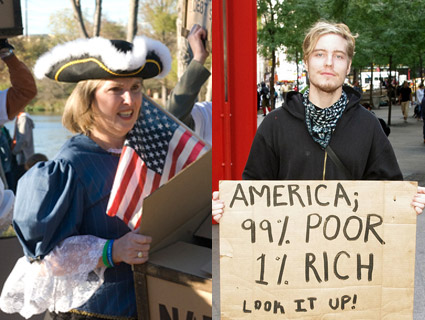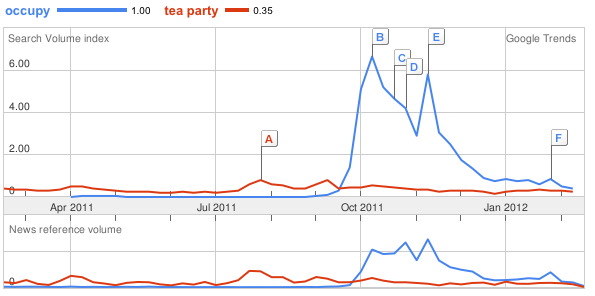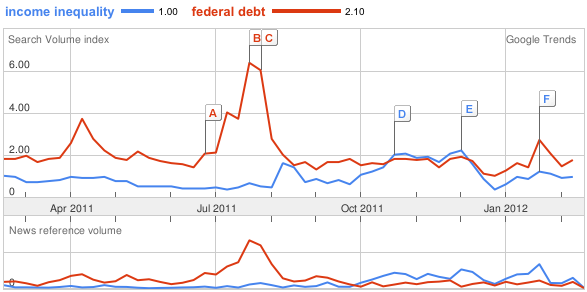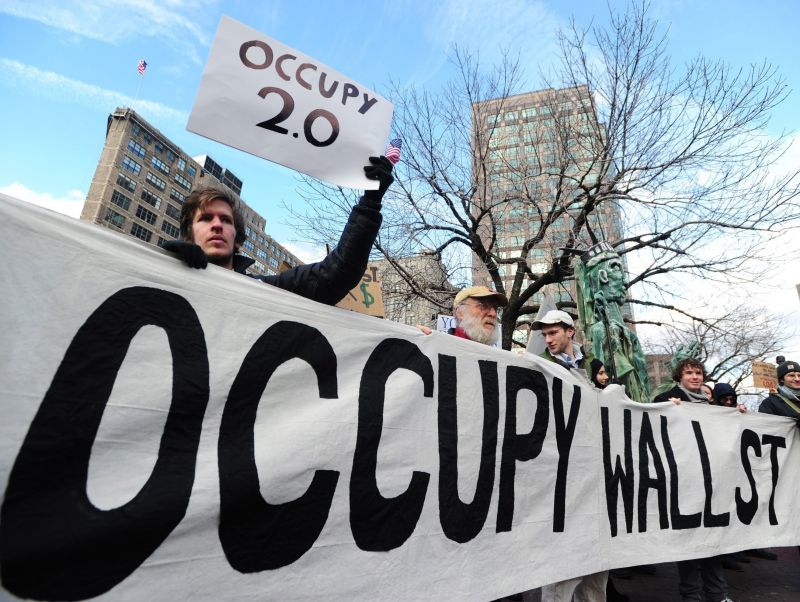
<a href="http://www.flickr.com/photos/19705810@N00/2116832638/">Roxanne Jo Mitchell</a>; <a href="http://www.flickr.com/photos/shankbone/6164464278/">David Shankbone</a>
In the battle for America’s attention, the Occupy movement rocketed past the tea party this fall and remains in the lead, though not by much anymore. Here’s a chart from Google Trends comparing the dueling movements’ Google hits (top graph) and news mentions (bottom graph):
 (The letters A-F are automatically generated by Google Trends)
(The letters A-F are automatically generated by Google Trends)
Here’s my best guess of what accounts for the peaks:
A: Congress reaches a debt ceiling compromise, capping a wave of stories about the intransigence of the tea party caucus.
B: Citing sanitation concerns, New York Mayor Michael Bloomberg threatens to evict Occupy Wall Street. But after occupiers scrub down the park and thousands of sympathizers turn out to defend them, the mayor backs down.
E: Occupy Wall Street is evicted.
So the occupy movement has gradually fallen off the front pages, but what about the political issues it brought to light? The following graphs suggest that “income inequality” continues to rival “federal debt” as a leading point of conversation, especially in the news media:
 B: Culmination of the federal debt ceiling fight
B: Culmination of the federal debt ceiling fight
D to E: The heyday of OWS coverage
F: Obama’s State of the Union address focuses on income inequality.
Though these charts have limits as barometers of public sentiment, the Occupy and tea party movements are clearly locked in a close race for attention. If anything, the charts might overstate the influence of the the tea party, which is getting a bump right now as the media obsesses over the GOP presidential primaries. And if Occupy makes good on its plans for an American Spring, it could easily hit the front pages again.
Of course, getting attention isn’t the same as getting results. Just ask Ron Paul, who easily bests his rivals in Google hits despite having virtually no chance of winning the GOP nomination. The question for activists and politicos is how grow the Occupy movement into a formula for change. The answer to that probably can’t be found on Google.
Front page image: Roxanne Jo Mitchell; David Shankbone














